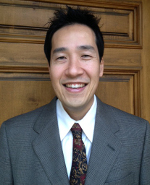Consolidation in medicine is an extensive trend. Will gastroenterology practices be swept along with the tide of physician groups seeking strength in numbers? Two practicing GI physicians weigh in on whether or not mergers will be a big trend in the field this year.
Ask a Gastroenterologist is a weekly series of questions posed to GI physicians around the country on business and clinical issues affecting the field of gastroenterology. We invite all gastroenterologists to submit responses.
Next week's question: How do you think Medicare's shift away from fee-for-service reimbursement will affect gastroenterologists?
Please submit responses to Carrie Pallardy at cpallardy@beckershealthcare.com by Thursday, February 5, at 5 p.m. CST.
Antonino Mannone, MD, gastroenterologist, Main Gastroenterology (Williamsville, N.Y.): Definitely, YES! Having been in solo practice since 1984, I have seen the writing on the wall. I am a dinosaur in the GI medical practice. What keeps me independent is my stubbornness and my love for my profession. Economically speaking, it does not make any sense to be in solo practice.
 Patrick Takahashi, MD, CMIO and Chief of Gastroenterology Section of St. Vincent Medical Center (Los Angeles): Although I don't expect consolidation to be a large trend this year, I do expect that there will be large financial impacts upon GI practices due to widespread changes in the Medicare and insurance company landscapes. Due to continuing cuts imposed by meaningful use penalties and increasing patient responsibilities for their bills, I do believe that there will be an overall downturn this year in both the field of gastroenterology, as well as in medicine.
Patrick Takahashi, MD, CMIO and Chief of Gastroenterology Section of St. Vincent Medical Center (Los Angeles): Although I don't expect consolidation to be a large trend this year, I do expect that there will be large financial impacts upon GI practices due to widespread changes in the Medicare and insurance company landscapes. Due to continuing cuts imposed by meaningful use penalties and increasing patient responsibilities for their bills, I do believe that there will be an overall downturn this year in both the field of gastroenterology, as well as in medicine.
This will result in a paradigm shift towards consolidation in the next few years, as a survival tactic for all parties involved. Increasing overhead expenses and potential decreases in volume and reimbursement are poor partners in the model of private practice. However, by consolidating, physicians can insulate themselves better against these downturn years in medicine. It will require an efficient effort by the brass to help identify payer contracts that make the most sense for one's practice, as well as endoscopy center.
The key thing to realize for any gastroenterology group is that they are not immune to the changes forthcoming in medicine, and it behooves them to plan ahead to avoid economic strife. Consolidation will obviously involve changes in personnel and staffing, thus creating tension among members of a group. How a group deals with this will help define their future.


